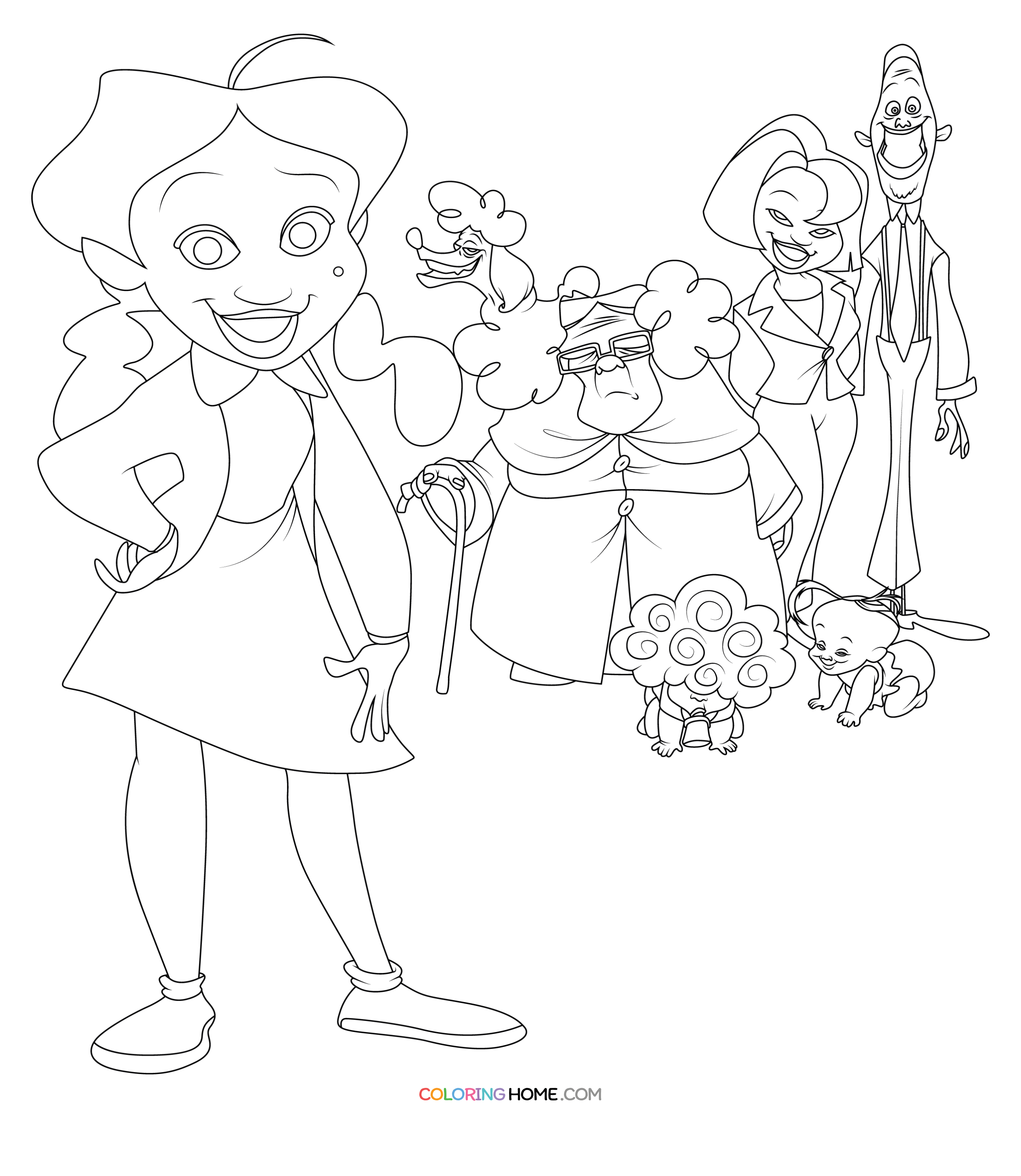Family structure in France has evolved significantly over the years, reflecting broader social, economic, and cultural changes. As one of the most influential countries in Europe, France offers a unique perspective on how family dynamics adapt to modern challenges while maintaining traditional values. This article delves into the intricacies of French family life, exploring its historical roots, current trends, and future outlook.
In recent decades, the concept of family in France has expanded beyond the traditional nuclear model. Factors such as changing societal norms, economic pressures, and government policies have contributed to this evolution. Understanding these changes is crucial for anyone interested in French culture or considering relocation to France.
France's approach to family life is particularly noteworthy due to its comprehensive social welfare system and progressive family policies. The country's commitment to supporting families through various stages of life has made it a model for other nations. This article will explore these aspects in detail, providing valuable insights into the French family structure.
Read also:9x Hub Movies Exclusive Adult Content
Table of Contents
- Historical Perspective of French Family Structure
- Current Trends in French Family Dynamics
- Government Support for Families in France
- Cultural Influences on Family Life
- Work-Life Balance and Family Structure
- Impact of Education on Family Dynamics
- Urban vs Rural Family Structures
- Challenges Facing Modern French Families
- Future Outlook for French Family Structure
- Conclusion and Key Takeaways
Historical Perspective of French Family Structure
The evolution of family structure in France can be traced back to the Middle Ages, when extended families were the norm. During this period, multiple generations typically lived under one roof, with family businesses and agricultural activities being the primary means of livelihood.
Traditional Family Values
Several key characteristics defined traditional French family values:
- Strong emphasis on hierarchical family structures
- Clear division of roles between genders
- Importance of family reputation and social standing
Major Historical Shifts
The French Revolution marked a significant turning point in family dynamics. The introduction of civil marriage in 1792 and subsequent legal reforms gradually transformed family structures:
- 19th Century: Industrialization led to urban migration
- Early 20th Century: Decline of extended family living arrangements
- Post-WWII: Rise of nuclear family model
Current Trends in French Family Dynamics
Modern family structure in France reflects a diverse range of living arrangements. According to INSEE (National Institute of Statistics and Economic Studies), the traditional nuclear family now represents only about 50% of households.
Changing Family Compositions
Several notable trends have emerged in recent years:
- Increase in single-parent households (20% of families)
- Growth of blended families following remarriages
- Rise in cohabitation without marriage (PACS - Civil Solidarity Pact)
- Higher acceptance of same-sex families
Demographic Statistics
Recent data reveals interesting patterns in French family structures:
Read also:Muichiro New Uniform The Ultimate Guide To His Stunning Transformation
- Average household size: 2.2 people
- Median age at first marriage: 36 for men, 34 for women
- Average number of children per family: 1.8
Government Support for Families in France
France's comprehensive family support system is widely regarded as one of the most advanced in the world. The government invests approximately 3.7% of GDP in family benefits, significantly higher than the EU average of 2.3%.
Family Allowance System
The French family allowance system includes:
- Monthly child benefits starting from the second child
- Housing supplements for families with children
- Back-to-school allowances for school-age children
- Parental leave provisions for both parents
Childcare Infrastructure
France boasts an extensive childcare network:
- Crèches (nurseries) for infants and toddlers
- Maternelle (preschool) from age 3
- After-school programs and holiday camps
- Subsidized childcare costs based on income
Cultural Influences on Family Life
Cultural factors play a significant role in shaping family structure in France. French families traditionally emphasize quality time, education, and social connections.
Mealtime Traditions
French family culture places great importance on:
- Daily family meals, especially dinner
- Culinary traditions passed through generations
- Emphasis on healthy eating habits
Socialization Practices
French parenting styles typically focus on:
- Developing independence from an early age
- Encouraging cultural appreciation through arts and literature
- Balancing academic achievement with leisure activities
Work-Life Balance and Family Structure
France's approach to work-life balance significantly impacts family dynamics. The country's labor laws and cultural attitudes support family-friendly work environments.
Working Hours and Family Time
Key aspects of French work culture include:
- 35-hour workweek implemented in 2000
- Minimum five weeks of paid vacation
- Strict regulations on overtime work
Parental Leave Policies
France offers generous parental leave provisions:
- 16 weeks maternity leave (extendable for multiple births)
- 28 days paternity leave
- Shared parental leave options
- Job protection during leave periods
Impact of Education on Family Dynamics
The French education system plays a crucial role in shaping family structure and dynamics. Education is considered a fundamental right and receives significant government investment.
School System Structure
The French education system includes:
- École maternelle (preschool) from age 3
- École élémentaire (primary school) ages 6-11
- Collège (middle school) ages 11-15
- Lycée (high school) ages 15-18
Parental Involvement
French schools encourage family engagement through:
- Regular parent-teacher meetings
- Parent associations in schools
- Homework assistance programs
- Cultural and educational family activities
Urban vs Rural Family Structures
Significant differences exist between urban and rural family structures in France, influenced by lifestyle, economic opportunities, and social networks.
Urban Family Characteristics
Urban families typically exhibit:
- Smaller household sizes
- Higher rates of dual-income households
- Increased use of professional childcare services
- More diverse family compositions
Rural Family Dynamics
Rural areas maintain more traditional family structures:
- Stronger extended family networks
- Higher rates of home ownership
- Greater emphasis on agricultural inheritance
- More community-based support systems
Challenges Facing Modern French Families
Despite strong government support, French families face several contemporary challenges that impact family structure.
Economic Pressures
Key economic challenges include:
- Rising housing costs in urban areas
- Increasing cost of education
- Job market instability
- Balancing work and family responsibilities
Social Changes
Societal shifts present new challenges:
- Changing gender roles and expectations
- Integration of immigrant families
- Impact of digital technology on family interactions
- Balancing traditional values with modern lifestyles
Future Outlook for French Family Structure
The future of family structure in France will likely be shaped by several emerging trends and factors.
Demographic Projections
Experts predict:
- Continued decline in average family size
- Increase in alternative family arrangements
- Growing diversity in family compositions
- Aging population impacting family dynamics
Policy Developments
Anticipated policy changes include:
- Enhanced support for working parents
- Improved childcare infrastructure
- Greater recognition of diverse family models
- Increased focus on work-life balance
Conclusion and Key Takeaways
The family structure in France represents a fascinating blend of traditional values and modern adaptations. From its historical roots to contemporary challenges, French family life continues to evolve while maintaining its core principles of support and community.
Key points to remember about family structure in France include:
- Comprehensive government support systems
- Diverse family compositions reflecting modern society
- Strong emphasis on work-life balance
- Cultural traditions shaping family dynamics
We encourage readers to share their thoughts and experiences regarding family structure in France in the comments below. If you found this article helpful, please consider sharing it with others who might be interested in understanding French family life. For more insights into French culture and society, explore our other articles on related topics.

